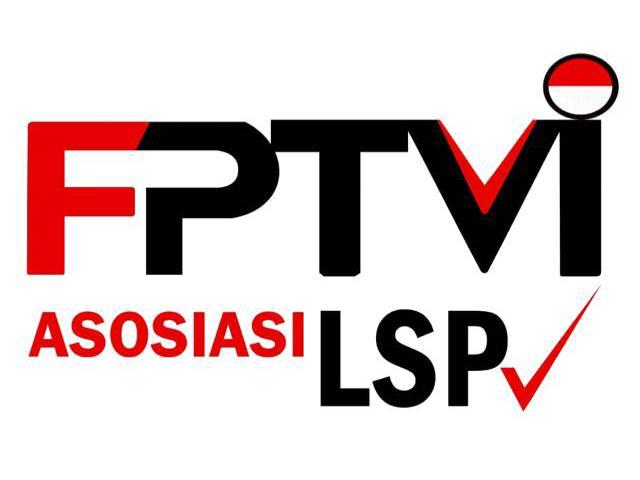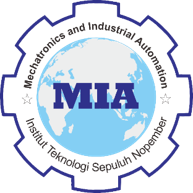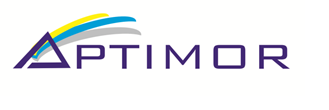- » Focus and Scope
- » Section Policies
- » Peer Review Process
- » Publication Frequency
- » Open Access Policy
- » Archiving
- » State of Origin
- » Article Processing Charges
- » Publication Ethics and Malpractice Statement
- » Repository Policy
Focus and Scope
The journal accept original research, communication, and notes. We also invite expert to write review articles.
Scope of IPTEK The Journal of Engineering includes a wide spectrum of subjects including:
Computer Engineering and Information Systems
- Telematics
- Algorithms and Programming
- Network Based Computing
- Smart Computing and Vision
- Intelligent Information Management
- Computer Architecture and Networking
- Applied Modeling and Computing
- Graphics, Interaction, and Games
- Software engineering
- Information Technology Infrastructure and Security
- Information Systems Management
- Data Engineering and Business Intelligence
- Data Acquisition and Information Dissemination
- Enterprise system
- Smart Cities and Cyber Security
Civil Infrastructure Engineering
- Hydrotechnics and Surveying
- Construction Implementation Management
- Building Materials and Structures
- Transportation and Geotechnics
Mechanical Engineering
- Energy Convertion
- Metallurgical and Materials Engineering
- Mechanical Design
- Manufacture
Electrical Engineering Automation
- Cyber Physical, Automation, and Industrial Robots
- Programmable Logic Controller and Control System
- Antennas and Propagation
- Instrumentation, Measurement and Power System Identification
- Multimedia Telecommunications Network
- Multimedia Communication
- Electric Energy Conversion
- Electric Power System Simulation
- High voltage
- System and Cybernetics
- Microelectronics and Embedded Systems
- Biocybernetics
- Instrumentation and Biomedical Signal Processing
- Multimedia Computing and Machine Intelligence
- Digital Signal Processing
Chemical Engineering
- Applied Chemistry
- Biochemical and Bioprocess
- Advance Functional Materials and Analysis
- Thermodynamic
- Chemical Reaction
- Material and Nanocomposite
- Bioenergy
- Wastewater Treatment
- Process Integration
- Fluid Mechanic
- Sustainable Industrial Systems
Instrumentation Engineering
- Control Instrumentation
- Measurement Instrumentation
- Photonic Engineering
- Vibration and Acoustics
- Embedded Systems and Physical Cyber
Business Statistics
- Business Analytic
- Quality and Productivity Engineering
And physical, chemical, biological, and environmental sciences that are directly related to engineering.
Section Policies
Articles
Peer Review Process
This is a high quality journal as it is well reviewed by reputable scholars specifying on related areas of the studies. In addition, the reviewers are invited from all reputable universities from both Indonesia and abroad with peer review process.
Publication Frequency
IPTEK The Journal of Engineering (E-ISSN: 2807-5064) is an academic journal on the issued related to engineering and technology. IPTEK The Journal of Engineering published first time in August 2014. From 2014-2018 (Volume 1-4) it published three issues (numbers) annually (April, August, and December). Since 2019 published annually in April and August. It is open to all scientists, researchers, education practitioners, and other scholars.
Open Access Policy
This journal provides immediate open access to its content on the principle that making research freely available to the public supports a greater global exchange of knowledge.
Archiving
This journal utilizes the LOCKSS system to create a distributed archiving system among participating libraries and permits those libraries to create permanent archives of the journal for purposes of preservation and restoration. More...
The name of other website where policy is registered is digilib.its.ac.id.
State of Origin
IPTEK The Jounal of Engineering, (eISSN: 2807-5064; Print ISSN: 2337-8557) is an academic journal on the issued related to engineering, earth science, and technology. Since 2023, IPTEK The Journal of Engineering regularly published 3 issues for each volume, in April, August, and December.
IPTEK The Journal of Engineering is also collaborating with FPTVI LSP (Forum Perguruan Tinggi Vokasi Indonesia Asosiasi
Lembaga Sertifikasi Profesi), MIA (Pusat Unggulan IPTEK Mechatronics and Industrial
Automation), and APTIMOR (Aktor Penyedia Teknologi Industri Mekatronika,
Otomasi dan Robotika) in terms of sharing knowledge in Journal Management and Publishing.
It is open to all scientist, researchers, education practitioners, and other scholar. Therefore this journal welcomes to various topics that have recieved by professors and doctors specifying on related studies, and they come from reputable universities all over Indonesia and abroad. This website contained our published journal from first edition until the latest edition with open access full paper content. For printing file from the first edition (Volume 1) until Volume 22 No. 3 August 2012 are available in editorial office.
Please contact us for order or further information at: email: iptek.joe@gmail.com Fax/Telp: 031 5992945 Editorial Office Address: LPPM Baru ITS Building 3rd floor, ITS campus, Sukolilo, Surabaya 60111, Indonesia.
Article Processing Charges
The journal requires no Article Processing Charge (APC), that includes submission charges, processing charges, extra page charges, and colour charges, from an author(s) for any manuscript that has been submitted, processed, and published through IPTEK Journal of Engineering
Nevertheless, the author has a full responsibility of any charge/cost incurred as the result of preparing or proofreading his/her manuscript on personal initiative.
Publication Ethics and Malpractice Statement
IPTEK The Journal of Engineering is a peer-reviewed electronic international journal. This statement clarifies ethical behaviour of all parties involved in the act of publishing an article in this journal, including the author, the chief editor, the Editorial Board, the peerreviewer----- and the publisher (Institut Teknologi Sepuluh Nopember). This statement is based on COPE’s Best Practice Guidelines for Journal Editors.
Ethical Guideline for Journal Publication
The publication of an article in a peer-reviewed IPTEK Journal of Engineering is an essential building block in the development of a coherent and respected network of knowledge. It is a direct reflection of the quality of the work of the authors and the institutions that support them. Peer-reviewed articles support and embody the scientific method.
It is therefore important to agree upon standards of expected ethical behavior for all parties involved in the act of publishing: the author, the journal editor, the peer reviewer, the publisher and the society.
Institut Teknologi Sepuluh Nopember as publisher of IPTEK The Journal of Engineering takes its duties of guardianship over all stages of publishing extremely seriously and we recognize our ethical and other responsibilities. We are committed to ensuring that advertising, reprint or other commercial revenue has no impact or influence on editorial decisions. In addition, Institut Teknologi Sepuluh Nopember and Editorial Board will assist in communications with other journals and/or publishers where this is useful and necessary.
Publication decisions
The editor of the IPTEK The Journal of Engineering is responsible for deciding which of the articles submitted to the journal should be published. The validation of the work in question and its importance to researchers and readers must always drive such decisions.
The editors may be guided by the policies of the journal's editorial board and constrained by such legal requirements as shall then be in force regarding libel, copyright infringement and plagiarism. The editors may confer with other editors or reviewers in making this decision.
Fair play
An editor at any time evaluate manuscripts for their intellectual content without regard to race, gender, sexual orientation, religious belief, ethnic origin, citizenship, or political philosophy of the authors.
Confidentiality
The editor and any editorial staff must not disclose any information about a submitted manuscript to anyone other than the corresponding author, reviewers, potential reviewers, other editorial advisers, and the publisher, as appropriate.
Disclosure and conflicts of interest
Unpublished materials disclosed in a submitted manuscript must not be used in an editor's own research without the express written consent of the author.
Duties of Reviewers
Contribution to Editorial Decisions
Peer review assists the editor in making editorial decisions and through the editorial communications with the author may also assist the author in improving the paper.
Promptness
Any selected referee who feels unqualified to review the research reported in a manuscript or knows that its prompt review will be impossible should notify the editor and excuse himself from the review process.
Confidentiality
Any manuscripts received for review must be treated as confidential documents. They must not be shown to or discussed with others except as authorized by the editor.
Standards of Objectivity
Reviews should be conducted objectively. Personal criticism of the author is inappropriate. Referees should express their views clearly with supporting arguments.
Acknowledgement of Sources
Reviewers should identify relevant published work that has not been cited by the authors. Any statement that an observation, derivation, or argument had been previously reported should be accompanied by the relevant citation. A reviewer should also call to the editor's attention any substantial similarity or overlap between the manuscript under consideration and any other published paper of which they have personal knowledge.
Disclosure and Conflict of Interest
Privileged information or ideas obtained through peer review must be kept confidential and not used for personal advantage. Reviewers should not consider manuscripts in which they have conflicts of interest resulting from competitive, collaborative, or other relationships or connections with any of the authors, companies, or institutions connected to the papers.
Duties of Authors
Reporting standards
Authors of reports of original research should present an accurate account of the work performed as well as an objective discussion of its significance. Underlying data should be represented accurately in the paper. A paper should contain sufficient detail and references to permit others to replicate the work. Fraudulent or knowingly inaccurate statements constitute unethical behaviour and are unacceptable.
<Data Access and Retention
Authors are asked to provide the raw data in connection with a paper for editorial review, and should be prepared to provide public access to such data (consistent with the ALPSP-STM Statement on Data and Databases), if practicable, and should in any event be prepared to retain such data for a reasonable time after publication.
Originality and Plagiarism
The authors should ensure that they have written entirely original works, and if the authors have used the work and/or words of others that this has been appropriately cited or quoted.
Multiple, Redundant or Concurrent Publication
An author should not in general publish manuscripts describing essentially the same research in more than one journal or primary publication. Submitting the same manuscript to more than one journal concurrently constitutes unethical publishing behaviour and is unacceptable.
Acknowledgement of Sources
Proper acknowledgment of the work of others must always be given. Authors should cite publications that have been influential in determining the nature of the reported work.
Authorship of the Paper
Authorship should be limited to those who have made a significant contribution to the conception, design, execution, or interpretation of the reported study. All those who have made significant contributions should be listed as co-authors. Where there are others who have participated in certain substantive aspects of the research project, they should be acknowledged or listed as contributors. The corresponding author should ensure that all appropriate co-authors and no inappropriate co-authors are included on the paper, and that all co-authors have seen and approved the final version of the paper and have agreed to its submission for publication.
Hazards and Human or Animal Subjects
If the work involves chemicals, procedures or equipment that have any unusual hazards inherent in their use, the author must clearly identify these in the manuscript.
Disclosure and Conflicts of Interest
All authors should disclose in their manuscript any financial or other substantive conflict of interest that might be construed to influence the results or interpretation of their manuscript. All sources of financial support for the project should be disclosed.
Fundamental Errors in Published Works
When an author discovers a significant error or inaccuracy in his/her own published work, it is the author’s obligation to promptly notify the journal editor or publisher and cooperate with the editor to retract or correct the paper.
Repository Policy
IPTEK The Journal of Engineering has a policy allowing authors to deposit versions of their work in ITS Digilib.
This work is licensed under a Creative Commons Attribution 4.0 International License. IPTEK The Journal of Engineering published by Pusat Publikasi Ilmiah, Institut Teknologi Sepuluh Nopember.
Please contact us for order or further information at: email: iptek.joe[at]gmail.com Fax/Telp: 031 5992945. Editorial Office Address: Pusat Riset Building 6th floor, ITS Campus, Sukolilo, Surabaya 60111, Indonesia.








